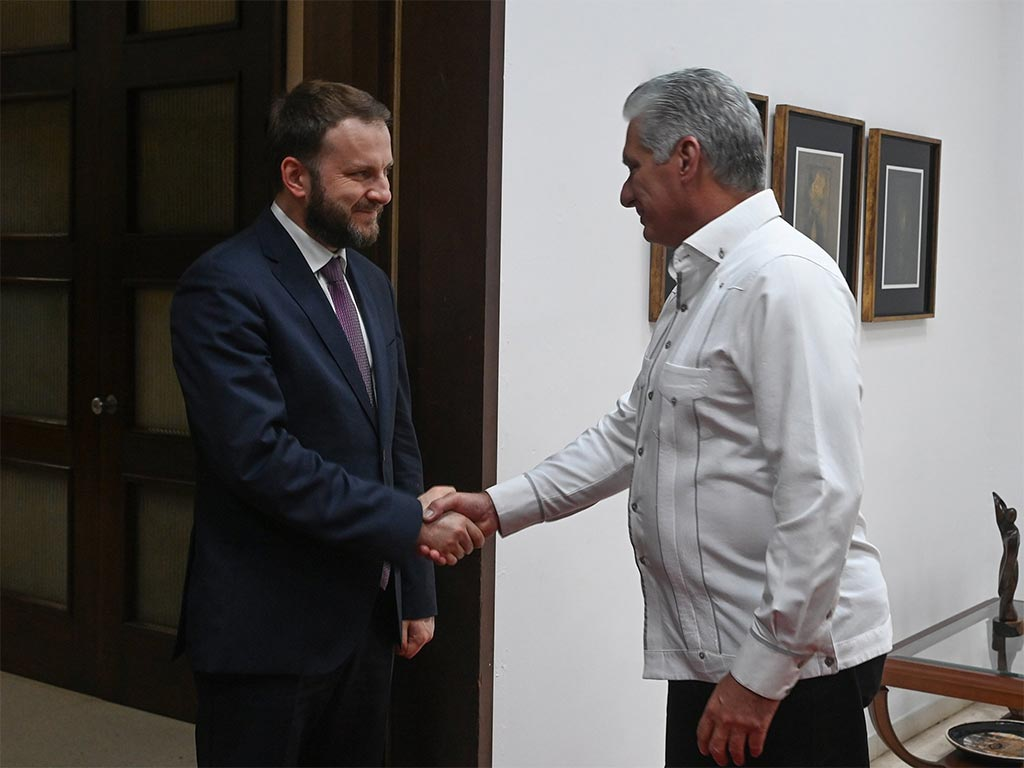Cuban President Miguel Díaz-Canel held talks on Tuesday with Russian presidential economic advisor Maxim Oreshkin, who is visiting our country.
According to the Presidency’a Twitter profile, Diaz-Canel ratified the interest in bringing bilateral economic-financial relations to the same state of policies.
Oreshkin, for his part, commented on the three main work guidelines that have been proposed for the development of economic ties between the two nations: energy, increased flow of tourism and investment.
During the day, the Russian presidential advisor held a working meeting with the Deputy Prime Minister of Cuba and Minister of Foreign Trade and Foreign Investment, Ricardo Cabrisas, in which the parties reaffirmed the will to strengthen relations between the two allied countries.
At that meeting, the Cuban deputy head of government welcomed the signing of a protocol on the reordering of the Caribbean nation’s debt with Russia, which, he said, will make it possible to reactivate the financing of programs that were once paralyzed.
He considered it necessary to pay attention to commercial exchange in order to increase and diversify exports, especially those associated with health and tourism, and proposed to explore other avenues adjusted to the existing potential between both States, such as foreign investment.
Cabrisas explained that Oreshkin’s visit comes at a complex time for Cuba’s economy and urged to understand its reality to jointly turn difficulties and obstacles into opportunities, and move forward to a new stage of economic relations.
Oreshkin affirmed that Russia brought to Cuba a set of investment initiatives, with projects that will seek to contribute to the island’s budget revenues.
He also assured that a new format of relations and interaction work will be analyzed to take advantage of the existing potentialities in the Cuban economy.
The Russian official affirmed that there is a potential for investments in the energy sphere and referred to the prospects for cooperation in the agro-industry, especially in the production of sugar cane.


